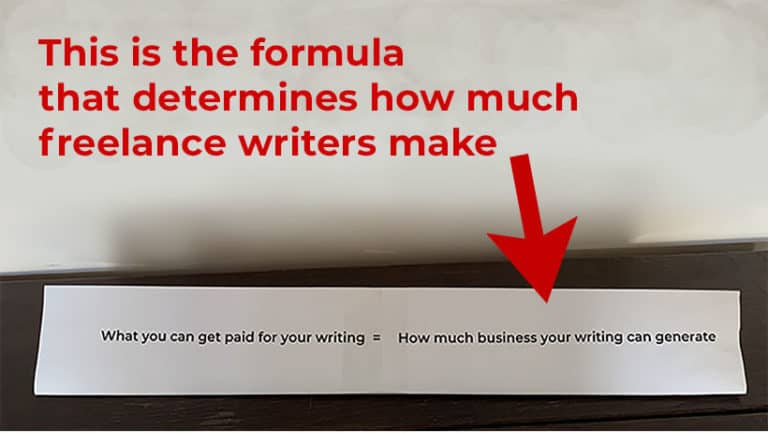11 Common Traits of Successful Freelance Content Writers
Wondering if you’ve got what it takes to be a successful freelance writer? It takes more than writing skills. See if any of these personality traits describes you.
1. They like to learn.
Freelance writing is in some ways just a constant call to learn. To learn as you write for clients. To learn new ways to promote yourself. To learn new ways to write better. To learn new ways to make money with your writing.
Another way to say this: They are curious.
2. They are detail-oriented.
Clients will expect you to deliver nearly perfect work. Some clients will not rehire you if you turn in work with even a couple of minor grammar mistakes. So if you’re not the sort of person who’s willing to do a search Google search to confirm that WordPress is the correct format for a popular website software (not WordPress, or Word press), then you’re in the wrong business.
3. They know how to ask.
Successful freelance writers ask. They ask for work. They ask for referrals. They ask for raises. They ask for testimonials. They don’t just keep their head down and take whatever is given to them. That’s what writers who earn $6.25 per hour do.
4. They constantly improve their writing skills and their understanding of the subjects they write about.
Successful freelance writers will look a word up if they’re not completely sure what it means. They’ll check the usage of a verb in a sentence just to be sure they’ve got it right. They are constantly picking up little bits of information about how to write better, whether it’s using the word “that” less often, or if it means trying to get a quote from someone in their industry to make a particular key point stronger in an article.
5. They are financially careful.
Freelance writers’ incomes can be uncertain. Smart, successful freelancers prepare for this ahead of time. Maybe they do this by setting aside 30% of every dollar they earn into a savings account. Maybe they just keep their credit card balances low because they don’t know when they might be short on cash. Maybe they even have a side hustle that they can do for quick cash. Whatever it is, they’ve built in some flexibility into their finances. If you cannot manage your finances even sort of well, at some point you will probably hit a rough spot in your freelance writing career that forces you back into a job.
6. They can write quickly.
A successful freelance writer doesn’t need ten hours to write 1,000-words. And if she knows the subject matter, and is writing for a client she’s worked with before, and she’s well-rested and not unduly distracted, she may be able to write that 1,000-word article in three to four hours, if not faster.
7. They pay attention to what their clients need and want.
Note that what clients need may actually be different than what they want. But a successful freelance writer will pay attention to directions, understand what her client wants, and do her best to also deliver what her client needs, even if they don’t know to ask for it.
8. They deliver A+ work as often as they can.
Even when it seems like they’ve got a stupid assignment that no one cares about. A successful freelance writer knows that miracle assignments can come from nowhere. If she does an A+ job even on what looks like some dumb, meaningless assignment, it could be that she’s just actually just completed the screening test for a really amazing assignment. So she always does the very best job she can, even if the assignment feels like it’s beneath her skill set.
9. They make suggestions.
Successful freelance writers tend to work directly with their clients, rather than through content mills, content services, or even agencies. Working directly with clients has many benefits, but one of the most important benefits is that it means freelance writers can make suggestions. This turns them from being order-takers into people who shape the company’s actions. It means they can contribute more, and they are recognized as contributing more. This results in better pay.
10. They take risks.
Newsflash: Not everything you try as a freelance writer is going to work. Launching your writer’s website may not work at first. Doing outreach to potential clients on LinkedIn may not work at first. Sometimes things take more than one try to work.
Successful freelance writers can take action without 100% assurance of success. They understand that there’s going to be some effort into testing what works and what doesn’t work for them. They keep going even if a few things don’t work, and it doesn’t stop them from trying.
11. They can handle rejection.
50 cold emails sent out, and no response? New client says they’re under-whelmed with your first piece? You accidently see the CMO’s rather harsh comments on a Google Docs draft?
The successful freelance writer can handle all these things. Do they like them? No. Does it mean they might change their approach? Possibly.
But it does not mean they are going to collapse into a heap and stop trying.
Here’s one of the most important concepts you need to understand if you want to be able to handle rejection: Stop treating your writing like it’s a part of you. Again, this is not creative writing. This is professional writing.
If you can detach from your drafts and your finished pieces, and see them simply as content, not “your” content, you’ll be much less likely to get your feelings hurt when someone says something nasty.
Even more importantly, you’ll be more likely to hear the valuable parts of the criticism you get, and to apply it. It is possible that the nasty, soulless CMO who trashes your work in a comment actually has something really valuable to tell you – a new idea that may improve your work for years to come.
If you’re feeling vulnerable and like your work is precious, you’ll be too upset to hear the valuable part of his message. But if you’re a pro, and you’re just looking through the comments like someone who is processing customer service tickets, you may be able to hear that jewel of advice hidden under the nastiness.




